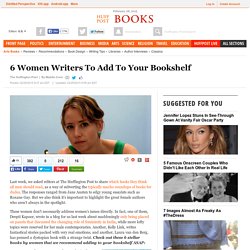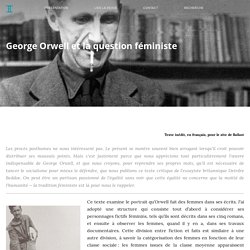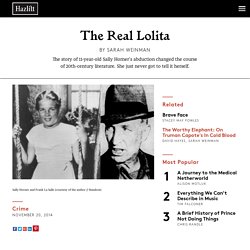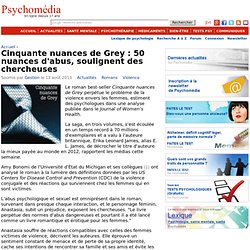

In No Regrets, women writers talk about what it was like to read literature's "midcentury misogynists." Photo by Stokkete/Shutterstock In 2007, the literary magazine n+1 asked a group of writers to engage in a dialog about the formative books in their lives as young readers.

The exercise returns this month with the pamphlet No Regrets, which recruited a cast of exclusively female participants to talk about the books they read (or didn’t) early on. “I knew that women speak to one another differently in rooms without men,” moderator Dayna Tortorici writes. “Not better, not more honestly, not more or less intelligently—just differently, and in a way one doesn’t see portrayed as often as one might like.”
The result is a fascinating exploration of the development of female readers, from their disillusionment with manly canonical works to their discovery of books that speak to a female experience and toward a complicated understanding of how both sexist and feminist works have influenced their view of the world. Amanda Hess is a Slate staff writer. This isn’t just about the books. Femmes de lettres. Quelques liens: - la page du Ministère de l’éducation nationale sur laquelle j’ai trouvé les sujets du bac de littérature de 2001 à 2014 - La BD Olympe de Gouges de Catel et Boquet chez Casterman écritures: une jolie façon de découvrir cette femme extraordinaire dont personne ne parle plus, et qui a pourtant bien brassé notre pays.

6 Women Writers To Add To Your Bookshelf. Last week, we asked editors at The Huffington Post to share which books they think all men should read, as a way of subverting the typically macho roundups of books for dudes.

The responses ranged from Jane Austen to edgy young essayists such as Roxane Gay. But we also think it's important to highlight the great female authors who aren't always in the spotlight. These women don't necessarily address women's issues directly. In fact, one of them, Deepti Kapoor, wrote in a blog for us last week about maddeningly only being placed on panels that discussed the changing role of femininity in India, while more lofty topics were reserved for her male contemporaries. Another, Kelly Link, writes fantastical stories packed with very real emotions, and another, Laura van den Berg, has penned a dystopian book with a strange twist. Laura van den Berg, author of Find Me "Gallivanting across America by bus, the lonely Joy plays a road trip game to pass the time.
Ugly Girls is Hunter’s first novel. BALLAST George Orwell et la question féministe. Texte inédit, en français, pour le site de Ballast Les procès posthumes ne nous intéressent pas.

Le présent se montre souvent bien arrogant lorsqu'il croit pouvoir distribuer ses mauvais points. Mais c'est justement parce que nous apprécions tout particulièrement l'œuvre indispensable de George Orwell, et que nous croyons, pour reprendre ses propres mots, qu'il est nécessaire de tancer le socialisme pour mieux le défendre, que nous publions ce texte critique de l'essayiste britannique Deirdre Beddoe.
On peut être un partisan passionné de l'égalité sans voir que cette égalité ne concerne que la moitié de l'humanité — la tradition féministe est là pour nous le rappeler. Ce texte examine le portrait qu’Orwell fait des femmes dans ses écrits. À 7 ans, elle convainc un éditeur de changer le titre d'une collection jugé sexiste. Hazlitt Magazine. Sally Horner walked into the Woolworth’s on Broadway and Federal to steal a five-cent notebook.

She had to, if the girls’ club she desperately wanted to join were to accept her into its ranks. She’d never stolen anything in her life; usually she went to that particular five-and-dime for school supplies and her favorite candy. But with days to go before the end of fifth grade, Sally was looking for a ticket to the ruling class, far removed from the babies below her at Northeast School in Camden, New Jersey.
It would be easy, the girls told her. Nobody would suspect a girl like Sally as a thief. Once inside, she reached for the first notebook she could find on the gleaming white nickel counter. Sally looked up. “I am an FBI agent,” the man said to Sally. Sally did what many young girls would have done in a similar situation: She cried. As the tears fell, the man froze her in place with his low voice. Sally didn’t know that much about reform school, but what she knew was not good. Cinquante nuances de Grey : 50 nuances d'abus, soulignent des chercheuses.
Amy Bonomi de l'Université d'État du Michigan et ses collègues (1) ont analysé le roman à la lumière des définitions données par les US Centers for Disease Control and Prevention (CDC) de la violence conjugale et des réactions qui surviennent chez les femmes qui en sont victimes.

L'abus psychologique et sexuel est omniprésent dans le roman, survenant dans presque chaque interaction, et le personnage féminin, Anastasia, subit un préjudice, exposent les chercheuses.